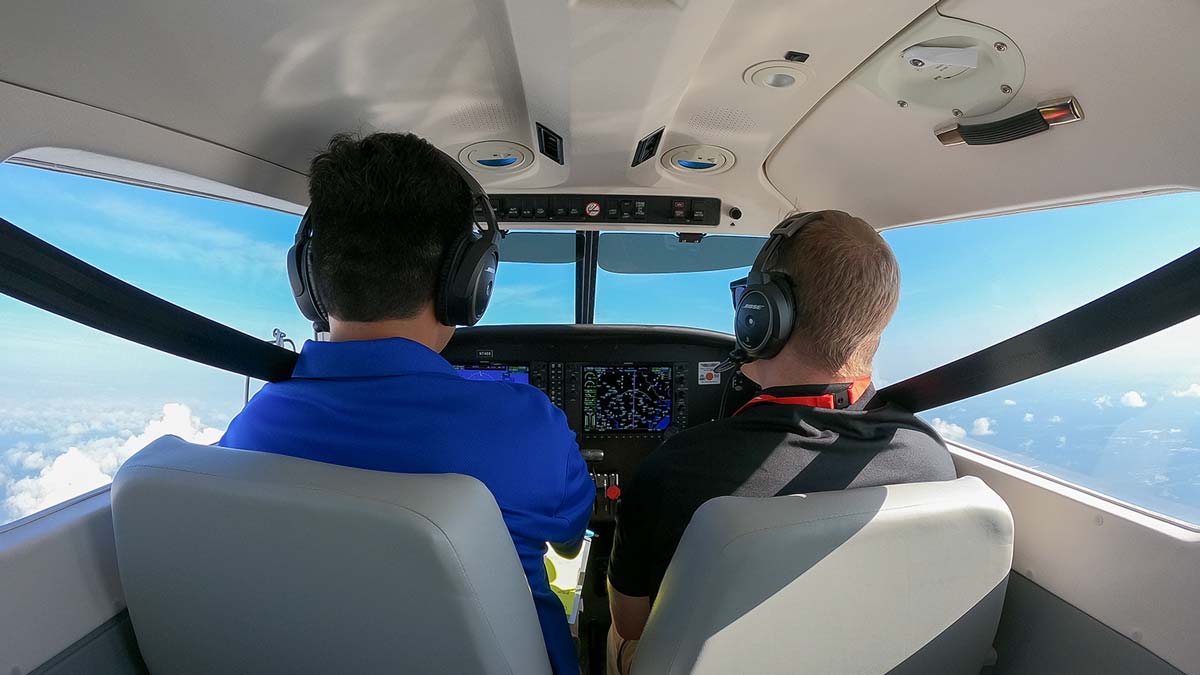If you ask any child what they’d like to be doing when they’re older, they’ll still answer “pilot”. This is a career that’s packed with excitement, technical precision and freedom. Once the dream becomes reality, however, future aviators start asking themselves whether pilots really earn and is the investment worth it?
This question is not as easy as just an easy number. Understanding the current salaries of airline pilots means navigating through a mix of wages at the beginning as well as growth trajectory, benefit structures, and real-life trade-offs that determine the financial aspects of aviation.

Image credit: flightschoolusa.com
Start Small: Why a lot of pilots get started in the region world
The majority of pilots don’t step directly into the cockpit of a Boeing 787. Their careers typically start with regional carriers where they fly smaller planes for shorter distances. These are entry-level jobs that serve as the learning ground for future captains. The pay is a reflection of this.
A regional airline pilot salary typically starts around $45,000 to $70,000, depending on the airline and whether the pilot comes with flight experience or is fresh out of school. Although it may seem low when compared to the price of flight training, regional experience can provide higher chances. Due to the lack of pilots, several regional carriers have increased their compensation.
The Salary of Commercial Pilots isn’t Always What you Imagine
Then things become interesting. It’s not required to possess commercial pilot’s licence to fly with any major airline. This means that you’re permitted to receive a payment from an airline for the time you fly. It could be charter, cargo sightseeing, crop-dusting, firefighting, or corporate jets. Each of these avenues provides a variety of compensation plans.
A charter pilot could earn as much as $60,000. A Gulfstream G650 Corporate Captain could earn as much as $200,000. Commercial pilots’ salaries are diverse because of the wide range of roles and risks. As opposed to the seniority structures of airlines, commercial sector often base pay on negotiation or the type of aircraft and contract terms with customers.
The numbers start to get huge
A salary for a pilot USA is more appealing for those who join major airlines and move up the ranks. The first officer of one of the major U.S. carrier might earn between $90,000 and $150,000. A senior captain flying international wide-body routes could earn between $300,000 to $400,000.
However, those numbers do not show the full picture. Seniority is often accompanied by hectic schedules, fatigue from the long distances traveled and lifestyle sacrifices. It’s a satisfying job but it’s not always glamorous.
The pay check you receive doesn’t reflect?
Benefits are the main focus of any conversation about airline pilot salaries. Many pilots put value in these benefits that go beyond the dollar amount. Benefits can affect the overall quality of life. They can range from complete medical insurance pension plans, as well as the ability to travel with family members.
In addition, a lot of airlines offer the possibility of signing bonuses (sometimes $15,000 to $75,000) for pilots with experience, especially pilots with military backgrounds or type ratings in high demand. These bonuses indicate a pressing requirement for professionals, given the ageing of pilots and the rising demand for flights in the U.S.
Does it really pay off?
The route to becoming a pilot in the U.S. isn’t just demanding it’s costly. The cost of flight school ranges from $70,000 to $150,000. The majority of pilots won’t be paid six-figure salaries until they are several years into their careers. But the long-term payoff is very real.
The job of a pilot is usually predictable, with a logical development and schedule that is desired by many other professions. However, for many pilots it’s the thrill of flying and the excitement that comes with commanding an aircraft that offer the primary advantages.
Final Thoughts
The American pilot’s salary isn’t about the numbers, it’s more about the journey, growth and the lifestyle. For those who dream of being a pilot and want to invest the time, money, and discipline to fly, the career offers not just a paycheck, but a purpose. Whether you’re looking at local jobs or commercial charters, as well as long-haul international flights, each step is not just about better earnings but a broader scope of possibilities.